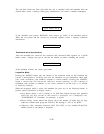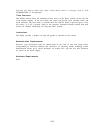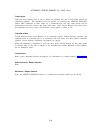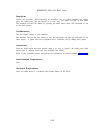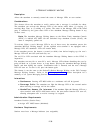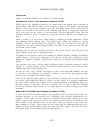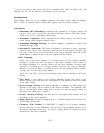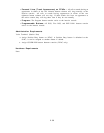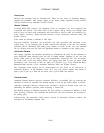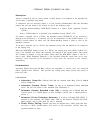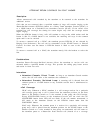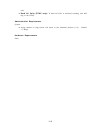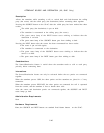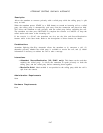ATTENDANT RELEASE
Description
Releases the attendant from an extended call. There are two forms of Attendant Release:
Manual and Automatic. This feature applies to the Direct Trunk Attendant Console (DTAC)
and the Switched Loop Attendant Console (SLAC).
Manual Release:
Pressing RELEASE releases the attendant from an extended call and completes the
associated call transfer. The status LED of the original calling facility will change from
hold to busy for direct trunk terminations and from hold to idle for other call facilities (e.g.,
Loop, Return- On-Busy, Return-On-Don’t-Answer,
Cover, Automatic Intercom, DSS, and
System Access).
Calls cannot be released to Reorder or Dial Tone.
Pressing CANCEL terminates the destination call and reconnects the attendant to the
calling party.
If the attendant goes on-hook without first releasing a call, the call extending
operation will be terminated (the calling party remains on hold). In this case, the attendant
can go off-hook and press the held call appearance button to reconnect to the calling party.
Automatic Release:
This feature simplifies the attendant procedures by eliminating the need for the attendant to
press RELEASE when releasing from one call to handle another. Selection of any new line
facility while active on the Start button will automatically release the first call. At release,
the status LED of the first calling facility will change from hold to busy for direct trunk
terminations and from hold to idle for other call facilities (e.g., Loop, Return-On-Busy,
Return-On-Don’t-Answer, Cover, Automatic Intercom, DSS, and System Access).
The Automatic Hold feature can be administered for the SLAC as an alternative to
Automatic Release.
If the attendant, active on a loop call, presses another loop button to
place a call or pick up a held call, the active call is put on hold—not released.
Considerations
Attendant Manual Release improves attendant efficiency in handling calls by allowing the
attendant to release an extended call without having to wait for the called station to answer.
Attendant Automatic Release enhances the attendant’s ability to handle many calls by
eliminating the Release operation when answering a second call.
The Release function is inhibited whenever the Start facility is connected to Reorder or Dial
Tone. Pressing CANCEL will terminate the destination call and reconnect the attendant to
the calling party.
Administering the Automatic Hold option instead of Automatic Release reduces the
occurrence of accidentally dropped calls.
2-40



